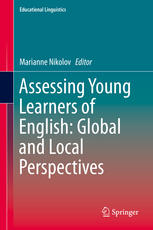

Most ebook files are in PDF format, so you can easily read them using various software such as Foxit Reader or directly on the Google Chrome browser.
Some ebook files are released by publishers in other formats such as .awz, .mobi, .epub, .fb2, etc. You may need to install specific software to read these formats on mobile/PC, such as Calibre.
Please read the tutorial at this link: https://ebookbell.com/faq
We offer FREE conversion to the popular formats you request; however, this may take some time. Therefore, right after payment, please email us, and we will try to provide the service as quickly as possible.
For some exceptional file formats or broken links (if any), please refrain from opening any disputes. Instead, email us first, and we will try to assist within a maximum of 6 hours.
EbookBell Team

5.0
58 reviewsThis volume documents international, national, and small-scale testing and assessment projects of English language education for young learners, across a range of educational contexts. It covers three main areas: age-appropriate ‘can do statements’ and task types for teaching and testing learners between the ages of 6 to 13; innovative approaches to self-assessment, diagnostic testing, self- perception, and computer-based testing; and findings on how young learners perform on vocabulary, listening, speaking, pronunciation, and reading comprehension tests in European and Asian contexts.
Early language learning has become a major trend in English language education around the globe. As a result of the spread of teaching English to a growing number of young children, assessment of and for learning have emerged as key issues. In line with this development, there is a clear and emerging need to make early language programs accountable and to assess both the progress children make over time and to quantify their achievement at various stages of development. This volume informs stakeholders about the realistic goals of early language learning, their efficiency, and how much progress children make over time.